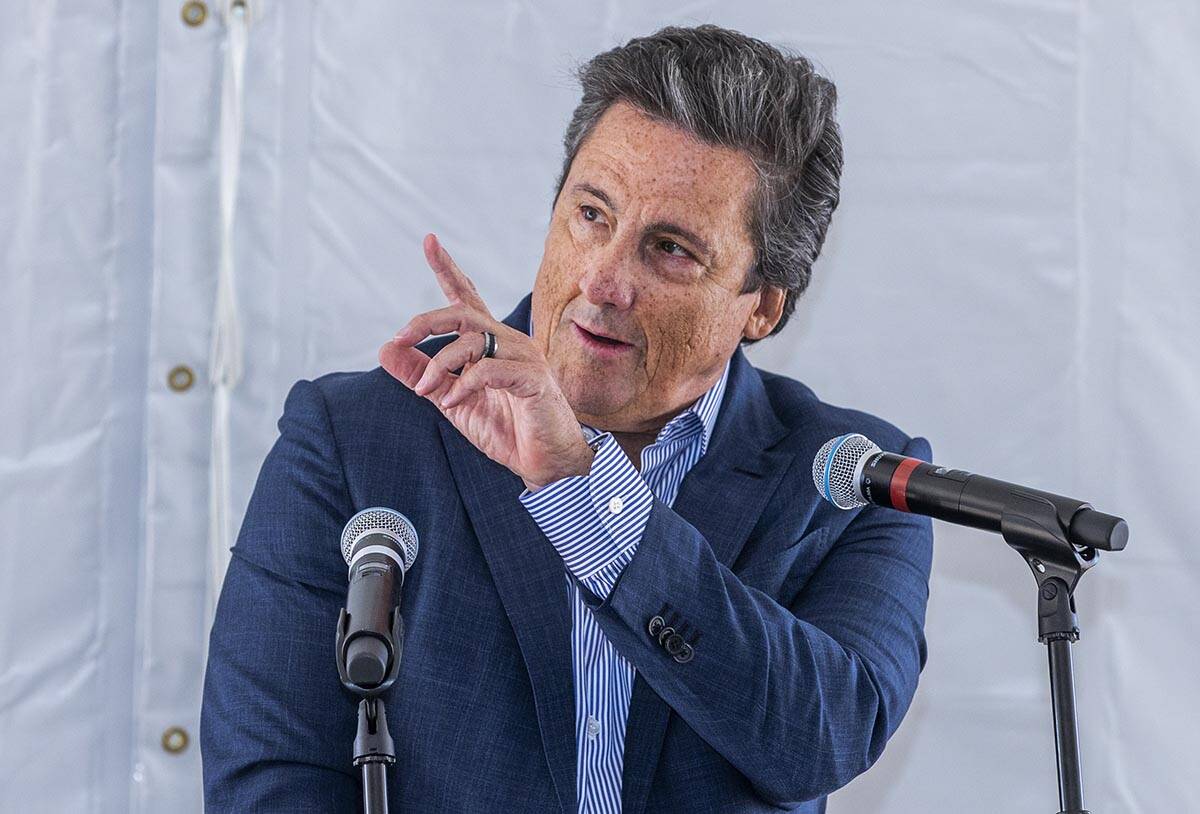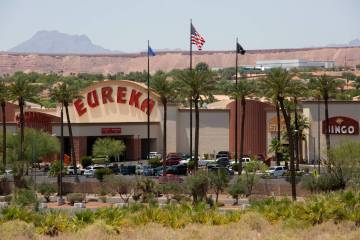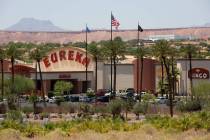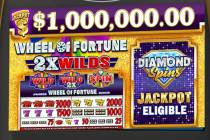Analysts optimistic after casino companies’ solid earnings
A festive mood permeated MGM Resorts International’s recent second-quarter earnings call, with President and CEO Bill Hornbuckle saying the results were “nothing short of spectacular.”
MGM Resorts reported $3.26 billion in total revenue and $1.78 billion in net income for the three months ending June 30, including a record $825.3 million in pre-tax earnings at its Las Vegas properties.
During the Q&A portion of the earnings call, some analysts finished their queries by congratulating Hornbuckle on the quarter.
MGM Resorts’ bottom line looked a lot different two years ago during the casino shutdown caused by the coronavirus pandemic. In the second quarter of 2020, MGM Resorts posted a mere $290 million in total revenue, almost $3 billion less than this year, with a net loss of $1 billion.
The pandemic continues to affect major casino companies, especially those heavily invested in Macao, but after mostly solid second-quarter results, investors and analysts are signaling that the worst might be behind the gaming industry and that now looks like a good time to buy.
“Everything looks great on the Strip and for the city,” Josh Swissman, founding partner of Las Vegas-based Strategy Organization, said. “Hopefully it stays that way. If the pandemic shutdown taught us anything, it’s that we need to be nimble. (The casino companies) have had a lot of practice with that.”
‘Overweight’ and happy
Banking giant J.P. Morgan is among those hanging the “buy” sign over major Las Vegas-based casino companies, as well as Reno-based Caesars Entertainment Corp.
Joseph Greff, managing director at J.P. Morgan, pointed to Morgan’s notes on the companies based off their second-quarter earnings.
The financial giant rated Boyd Gaming Corp., Caesars, Las Vegas Sands Corp., MGM Resorts and Red Rock Resorts as “overweight,” meaning their stock is worth more than the current price. Wynn Resorts Ltd. was rated as neutral, but only because Morgan sees “better values elsewhere in our coverage universe.”
That positive outlook comes as the U.S. economy is possibly heading toward a recession after gross domestic product shrank for two straight quarters.
But casino executives have noted that customers have shown no sign of slowing down. The Commerce Department reported last week that retail sales, excluding autos and auto parts, rose 0.4 percent in July, a sign consumer spending has held up despite inflation reaching levels not seen in 40 years.
“We are certainly aware of the economic pressures weighing on the U.S. consumer,” Josh Hirsberg, Boyd Gaming’s chief financial officer, said on the company’s recent earnings call. “And while predicting the future is particularly difficult now, there is no compelling reason today to say that the course of our business is changing. Our consumer trends in July confirmed the continued stability we have seen for the last year.”
Swissman said another encouraging sign for Las Vegas was that convention business and international travel still have not approached pre-pandemic levels, leaving plenty of space for growth.
“There are still some remnants that need time to heal,” he said. “… There’s definitely a lot of room for improvement.”
Long term in Macao
MGM Resorts’ big second quarter was driven in part by the deconsolidation of MGM Growth Properties, a real estate investment trust that was bought by Vici Properties for $17.2 billion.
Boyd Gaming ($146.8 million) and Red Rock ($32.4 million) also posted a net income, or profit, for the second quarter. Like MGM Resorts, Caesars collected record pre-tax earnings of $547 million for its Las Vegas properties, though it still posted an overall loss of $123 million.
Las Vegas Sands Corp. posted a net loss of $414 million and Wynn lost $213.4 million, but they are the Las Vegas-based casino companies most affected by continued pandemic-related restrictions in Macao. Wynn posted record quarterly results for its Las Vegas properties.
Rob Goldstein, chairman and CEO of Las Vegas Sands Corp., said on its investors call that the company had great confidence in its long-term business in Macao.
“We continue to have the largest footprint in this incredible market,” he said. “We retain great optimism at our ability to perform at pre-pandemic levels and beyond once visitation returns. We welcome the opportunity to invest additional dollars in Macao, and we continue to believe Macao is an outstanding market for additional investment.”
Culinary contracts
In Las Vegas, another group that has taken notice of the record numbers for some properties is Culinary Local 226, the union representing 50,000 casino workers whose contracts expire next June, including 10,000 workers who were laid off during the pandemic and have not been called back to work.
Ted Pappageorge, secretary-treasurer for the Culinary union, said workers will be expecting big raises in the face of inflation.
“The employers here in Las Vegas, the gaming employers, are on a roll,” he said. “They’re doing pretty well, and we get that. We want them to do well. We need this community to do well. We need to come back strong.
“But they’ve got to make sure who got them there … and that’s the workers. So we’ll make sure we have that conversation next year.”
The Review-Journal is owned by the Adelson family, including Dr. Miriam Adelson, majority shareholder of Las Vegas Sands Corp., and Las Vegas Sands President and COO Patrick Dumont.
Contact Jim Barnes at jbarnes@reviewjournal.com or 702-383-0277. Follow @JimBarnesLV on Twitter.























